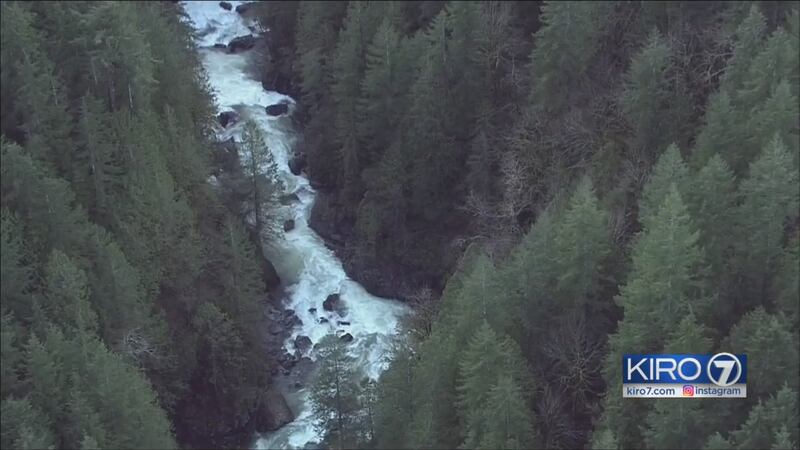ISSAQUAH, Wash. — With the growing population and interest in the outdoors, the number of people heading to local trails keeps growing, and so do the vague calls to 911.
"We'll get things like, ’We're out on a trail,'" said Chris Perez at Norcom's 911 call center. "They'll often describe what they think are landmarks, like rocks or significant trees. Up here in the dispatch center it's really hard for us to pinpoint that location, based on the landscape you're describing."
Eastside Fire and Rescue says it had 70 trail rescues just last year.
"We lose people," said Deputy Fire Chief Richard Burke, Eastside Fire and Rescue. "This technology will absolutely save lives. This is going to be able to tell us exactly where you are within eight-10 feet."
The new technology he's talking about is called Caller Location Query, CLQ, and it uses the GPS in your cellphone.
CLQ will soon be available northeast King County for first responders who use Norcom for 911 services.
If you get hurt or lost and call 911, or someone calls on your behalf, the dispatcher will send your cell phone a text message.
All you have to do is open the text and click on the links which will send your GPS coordinates back to 911.
Scroll down to continue reading
More news from KIRO 7
- Man shot and killed in West Seattle; suspect at large
- Police: Pit bull attacks Jehovah's Witnesses at front door
- Seattle homeless and the head tax: A timeline of the city's proposal
- Heated argument for, against Seattle head tax
- Pierce County family: Bullies at school drove our 14-year-old to suicide
"We click one more button to update the address and we've got your location," Perez explained.
When KIRO-7 tested CLQ on a trail near Issaquah, it took less than 30 seconds for the dispatcher to locate the position of our crew.
For CLQ to work, Location Services must be enabled on your cellphone when you are using your internet browser. While a dispatcher can walk you through how to enable Location Services over the phone, they say it will make it easier if you do it before you head to the woods.
According to Norcom, the current 911 technology uses different cellphone towers to triangulate the cellphone location. Dispatchers say it can be inaccurate up to three miles, meaning first responders can be far off in their search.
Still, Eastside Fire and Rescue Deputy Chief Richard Burke says CLQ will save time. Right now, if first responders don't know someone's location, they often have to wait for search and rescue volunteers.
"It's two-three hours sometimes before they can get to the trailhead just to start the rescue. If we need to get to somebody quickly, that may just be a mile or so up the trailhead, that's where we come in and can get to you quickly," Burke said.
CLQ cost Norcom about $5,000 and there's an annual maintenance fee that goes with it of $2,500. The cost will be shared by the jurisdictions covered by Norcom 911 service.
Trails are becoming so popular there is often nowhere to park. Some outdoor groups are starting to send buses of hikers to trails off I-90.
Burke says the cost of CLQ is minimal, compared to what they spend on trail rescues. "It will be paid for with the first rescue," he said.
For comparison, a three-hour trail rescue last week cost Eastside Fire and Rescue about $3,300.
Dispatchers are training local first responders on the technology and plan to launch CLQ later this month.
Cox Media Group









